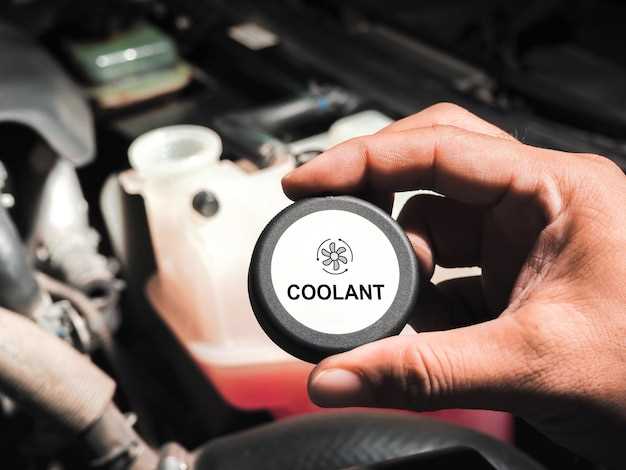

In the world of high-performance engines, effective coolant management is critical for maintaining optimal temperatures and ensuring peak performance. As engine demands increase, the choice of coolant becomes more than just a matter of preference; it is crucial for safeguarding engine components against overheating and thermal fatigue. With numerous options available, selecting the right coolant can be a daunting task for both enthusiasts and professionals alike.
High-performance vehicles generate substantial heat, making it essential to utilize coolants that can withstand extreme temperatures while providing superior thermal conductivity and corrosion resistance. The proper management of these fluids not only enhances engine efficiency but also prolongs its lifespan, contributing to the overall reliability of the performance vehicle. Understanding the various types of coolants and their specific properties is vital for making an informed decision that aligns with your engine’s requirements.
This article aims to explore the top coolants designed for high-performance engine applications, delving into their unique characteristics, advantages, and best use cases. By evaluating these options, you will be better equipped to choose a coolant that meets your performance needs and ensures efficient heat transfer, thus elevating your engine’s capabilities to the next level.
Choosing the Right Coolant Formula for Your Racing Engine

Selecting the right coolant formula for your racing engine is crucial for optimal performance and reliability under extreme conditions. High-performance engines generate significant heat, making effective thermal management essential to prevent overheating and ensure maximum efficiency.
When choosing a coolant, consider its heat transfer properties. A coolant with high thermal conductivity will dissipate heat more effectively, allowing your engine to maintain optimal operating temperature even during intense racing scenarios. Additionally, look for coolants that contain additives specifically designed to enhance performance, such as anti-corrosion agents and foam inhibitors.
The formulation’s freeze and boil points are also important. Racing engines endure varying weather conditions, and a coolant with an appropriate freeze point will protect against freezing during cold weather, while a high boiling point ensures that the engine remains cool during high-performance runs. Many racers opt for coolants that offer a wider range of operating temperatures to maintain consistent thermal management.
Compatibility with engine materials is another factor. Ensure that the coolant you choose is formulated to work with aluminum, cast iron, and other materials commonly used in racing engines. Incompatible chemistries can lead to corrosion and damage over time, negating the benefits of a high-performance coolant.
Finally, consider the manufacturer’s recommendations and any specific requirements dictated by your engine type. Many manufacturers offer proprietary coolant formulas designed to maximize performance for their engines. Adhering to these guidelines can provide additional assurance of reliability and efficiency during races.
How to Enhance Heat Dissipation with Advanced Coolant Additives
Optimal heat dissipation is crucial for high-performance engines, where excessive temperatures can lead to serious damage. Advanced coolant additives play a significant role in improving heat transfer efficiency. These additives often contain specialized ingredients designed to enhance thermal conductivity and reduce engine overheating.
One key component to look for is surfactants, which lower the surface tension of the coolant. This allows for better wetting of engine surfaces, improving heat exchange processes. Additionally, certain friction modifiers can reduce the thermal barrier between the coolant and engine components, further enhancing heat dissipation.
Corrosion inhibitors are also vital. While they primarily protect engine parts, they ensure that the coolant remains effective over time, preventing the build-up of deposits that could detract from heat transfer performance. Keeping the cooling system clean allows the coolant to circulate freely, ensuring efficient heat management.
Furthermore, consider using additives that utilize nanotechnology. Nano-sized particles can improve heat conductivity significantly by creating a more efficient thermal interface with metal surfaces. This advanced approach can lead to lower overall operating temperatures under high-stress conditions.
Regularly testing and maintaining the coolant quality is essential for achieving optimal heat dissipation. Monitoring pH levels and the concentration of additives helps ensure that the coolant performs as intended, effectively managing heat in high-performance engines.
Comparative Analysis of High-Performance Coolants: Pros and Cons

High-performance coolants play a crucial role in managing engine heat, ensuring optimal performance and longevity. Different types of coolants are available on the market, each offering unique advantages and disadvantages that can significantly influence engine efficiency.
First, let’s consider traditional ethylene glycol-based coolants. Their primary benefit is widespread availability and affordability. They offer good thermal conductivity and prevent corrosion, making them suitable for a variety of vehicles. However, their limitations include a relatively high freezing point and potential environmental hazards due to toxicity.
Next, propylene glycol-based coolants have gained popularity, particularly in applications where safety is paramount. They are less toxic and considered safer for humans and the environment. Their performance in heat transfer is generally good but may not match that of ethylene glycol in extreme conditions. Additionally, they can be more expensive, which may deter some users.
An alternative worth noting is water-based coolants enhanced with additives. These coolants provide excellent heat transfer capabilities, which can be crucial in high-performance scenarios. However, using pure water can lead to corrosion and scaling unless properly treated, and they require careful management of pH levels to prevent engine damage.
Another innovative option is the newest synthetic coolants, engineered specifically for high-performance applications. These fluids offer exceptional thermal management, can operate in extreme temperatures, and resist breakdown over time. Nevertheless, synthetic options are typically more costly upfront and may not be compatible with all radiator materials, necessitating thorough research before use.
In conclusion, while each high-performance coolant type presents its unique set of pros and cons, the choice largely depends on specific application requirements, budget considerations, and environmental factors. Understanding these parameters is essential to making an informed decision that aligns with engine cooling needs.







